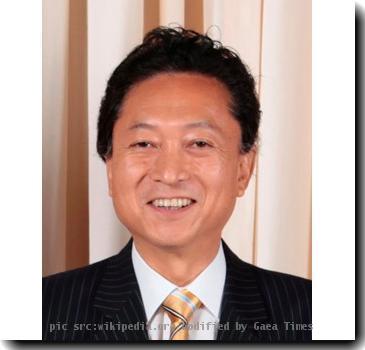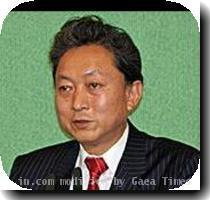Israeli foreign minister calls Iran, Syria and North Korea the new ‘axis of evil’
By Malcolm Foster, APWednesday, May 12, 2010
Israel FM: Iran, Syria, NKorea new ‘axis of evil’
TOKYO — Israel’s foreign minister on Wednesday declared North Korea, Syria and Iran the new “axis of evil,” claiming that North Korean weapons seized in Bangkok in December were bound for Middle Eastern militant groups Hamas and Hezbollah.
Foreign Minister Avigdor Lieberman said during a visit to Japan that the three countries are cooperating and pose the biggest threat to world security because they are building and spreading weapons of mass destruction.
“This axis of evil that includes North Korea, Syria and Iran, it’s the biggest threat to the entire world,” he told journalists in Tokyo.
“We saw this kind of cooperation only two or maybe three months ago with the North Korean plane in Bangkok with huge numbers of different weapons with the intention to smuggle these weapons to Hamas and Hezbollah,” Lieberman said without elaborating.
“Axis of evil” originated in then-President George W. Bush’s first State of the Union address in 2002, where he named North Korea, Iran and Iraq as threats to the United States.
Acting on a tip from the United States, Thai authorities on Dec. 12 seized an Ilyushin Il-76 cargo plane from the North Korean capital of Pyongyang when it landed in Bangkok. It was carrying 35 tons of weapons — a violation of U.N. sanctions against North Korea.
Flight documents indicated the plane’s cargo — listed as oil drilling equipment — was headed for the Iranian capital Tehran. Iranian officials denied they were importing weapons.
Analysts have said that while the aircraft may have been heading for Iran, the weapons could actually have been earmarked for radical Middle Eastern groups like Hamas and Hezbollah which Iran has bankrolled and supplied with weapons in the past.
The five-man crew — four from Kazakhstan and one from Belarus — claimed they were ignorant of what they were carrying. The crew was deported in February after prosecutors dropped all charges against them.
Thai authorities say the weapons on board included explosives, rocket-propelled grenades and components for surface-to-air missiles.
The U.N. imposed sanctions banning North Korea from exporting any arms after the communist regime conducted a nuclear test and test-fired missiles. Impoverished North Korea is believed to earn hundreds of millions of dollars every year by selling missiles, missile parts and other weapons to countries such as Iran, Syria and Myanmar.
Lieberman, who heads an ultranationalist party that is a junior partner in Israel’s coaltion government, also claimed that “missile programs” in Iran and Syria were receiving crucial assistance from the North Korean side. He gave no evidence.
Israel has long accused Syria of aiding the Jewish state’s bitterest enemies. Syria harbors the exiled leadership of Hamas and other anti-Israel Palestinian groups. Israel also says Syria funnels Iranian arms to Hezbollah, the Lebanese guerrilla group that battled Israel to a stalemate in a one-month war in 2006.
In recent weeks, Israel’s president, Shimon Peres, has accused Syria of providing Scud missiles to Hezbollah, potentially upsetting the balance of power in the region, and claimed that North Korea is a “duty free shop” for weapons that reach Iran, Lebanon and Syria.
Lieberman, who met with Prime Minister Yukio Hatoyama during his visit, also said that the Israeli government is ready to start direct peace talks without preconditions with the Palestinians.
The two sides completed the first round of U.S.-brokered, indirect peace talks over the weekend, resuming negotiations after a 17-month hiatus.
“It’s not necessary to speak about conditions to open or to restart the direct talks,” Lieberman said. “We have our experience, and we signed two peace agreements with our neighbors — with Jordan and Egypt — as a result of direct talks, not proximity talks.
Palestinian President Mahmoud Abbas has said he will not hold direct talks until Israel stops all settlement construction in the West Bank and east Jerusalem, the sector of the city Palestinians claim as a future capital. Israel has only agreed to a temporary slowdown in the West Bank, but not in east Jerusalem.
Lieberman, heads an ultranationalist party that is Netanyahu’s junior partner in the coalition also called for tough sanctions on Iran by the U.N. Security Council over its refusal to stop uranium enrichment.
The United States and its allies fear Tehran will use the process to build a nuclear weapon. Iran denies any intention to do so, saying its nuclear program aims only to generate electricity.
Associated Press Writer Eric Talmadge in Tokyo and Josef Federman in Jerusalem contributed to this report.
Tags: Asia, Bangkok, East Asia, Foreign Policy, International Agreements, Iran, Israel, Japan, Jerusalem, Middle East, North America, North Korea, Palestinian Territories, Southeast Asia, Syria, Tehran, Thailand, Tokyo, United States, West Bank, Yukio Hatoyama

